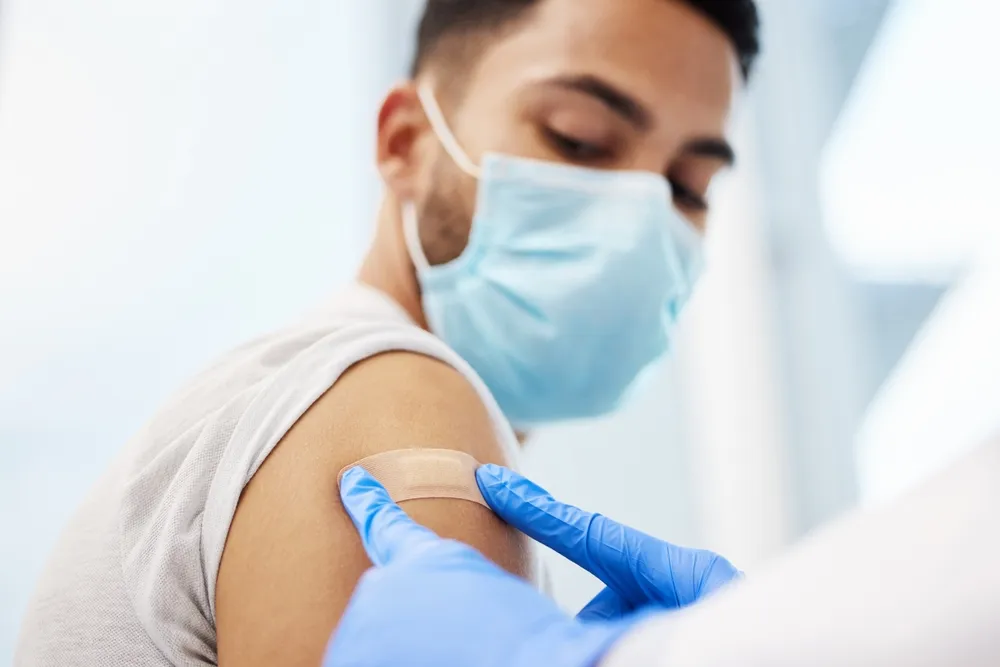
WHO Maintains Global Health Emergency Status for Mpox Amid 2024 Surge, Issues Strengthened Recommendations
In response to the continuing resurgence of mpox across several regions in 2024, the World Health Organization (WHO) convened the fourth meeting of the International Health Regulations (2005) Emergency Committee on 5 June 2025. The meeting, which ran from 12:00 to 17:00 CEST, concluded with a strong consensus: the current mpox situation continues to constitute a Public Health Emergency of International Concern (PHEIC). Acting on the Committee’s expert guidance, WHO Director-General Dr. Tedros Adhanom Ghebreyesus has reaffirmed the emergency status and issued an updated and extended set of temporary recommendations aimed at reinforcing global containment and mitigation strategies.
The WHO has expressed deep appreciation to the Chair, members, and advisors of the Emergency Committee for their ongoing dedication. A comprehensive report of the committee proceedings will be disseminated to States Parties and made publicly available in the coming days.
Temporary Recommendations: Strengthened Global Coordination and National Action
The revised temporary recommendations, applicable until at least 20 August 2025, target all WHO Member States experiencing mpox virus (MPXV) transmission. This includes countries facing sustained community outbreaks, those with localized clusters, or nations documenting sporadic, travel-related cases—particularly those involving MPXV clade Ib. The latest guidance complements existing standing recommendations and aligns with WHO’s Strategic Framework for Enhancing Prevention and Control of Mpox: 2024–2027.
Critically, WHO emphasized that all response measures must be carried out with strict adherence to the core tenets of the IHR Article 3: respect for human dignity, human rights, and individual freedoms.
Below is a detailed breakdown of the revised temporary recommendations across key strategic areas:
1. Emergency Coordination
WHO urges countries to strengthen political commitment at all levels of governance. National authorities must prioritize mpox prevention and response, allocating resources to administrative regions currently reporting mpox cases—especially identified hotspots from the past four weeks.
Countries are encouraged to:
- Reinforce national and sub-national coordination structures based on WHO’s 2025 Mpox Global Strategic Preparedness and Response Plan.
- Foster collaboration among local and international partners through mechanisms that promote accountability.
- Implement monitoring systems to assess the efficacy of local-level interventions and make data-informed adjustments.
- Partner with humanitarian organizations to ensure outreach in conflict zones, refugee camps, and displacement-affected communities.
All these measures remain extensions of prior recommendations, with updated references to the latest WHO frameworks.
2. Collaborative Surveillance
Strengthening disease surveillance remains a central pillar of the response. WHO calls for:
- Enhancing surveillance sensitivity and ensuring geographic inclusiveness.
- Scaling up diagnostic capabilities through expanded access to testing, efficient specimen transport networks, and decentralized laboratory services.
- Differentiating between virus clades and employing genomic sequencing to inform public health decisions.
- Intensifying contact tracing and investigations to break chains of transmission.
- Submitting timely weekly reports to WHO detailing confirmed, probable, and suspected cases.
3. Safe and Scalable Clinical Care
To reduce mpox-related morbidity and mortality, countries must build capacity to provide patient-centered, comprehensive care. Recommendations include:
- Ensuring clinical, nutritional, and psychosocial support for mpox patients, with isolation options either in healthcare settings or at home where feasible.
- Expanding access to optimized clinical care, particularly for vulnerable groups such as children, pregnant individuals, and people living with HIV (PLHIV). WHO highlights the increased risk of complications among PLHIV with untreated or advanced HIV.
- Offering HIV testing and STI screening for relevant cases, along with appropriate referrals.
- Training health workers in diagnosis, infection prevention and control (IPC), patient discharge protocols, and ensuring access to personal protective equipment (PPE).
- Upgrading WASH infrastructure and medical waste management to protect frontline health providers and patients.
4. International Travel and Trade
To avoid unnecessary economic disruptions, WHO recommends:
- Enhancing cross-border coordination for the detection, reporting, and management of mpox cases and contacts.
- Disseminating accurate information to travelers and transport operators without imposing unwarranted travel or trade restrictions.
5. Vaccination Strategy
The updated vaccination strategy focuses on outbreak control in affected areas, including:
- Continuing preparations for Phase 1 implementation of WHO’s 2025 mpox plan by identifying local hotspots and vaccinating high-risk groups.
- Tailoring vaccination approaches to local epidemiology using strategies such as fractional dosing during supply shortages.
- Integrating vaccination efforts with surveillance and contact tracing operations.
- Engaging communities to foster trust, increase vaccine uptake, and track immunization coverage and adverse events.
- Evaluating vaccine effectiveness and documenting implementation lessons.
6. Community Engagement and Protection
Meaningful community participation is essential for successful mpox control. WHO urges:
- Expanding risk communication and community engagement, particularly in affected areas and among high-risk populations.
- Combating stigma and discrimination through inclusive communication, particularly in healthcare settings and among civil society organizations such as HIV networks.
- Promoting IPC practices and access to sanitation in diverse settings, including schools, prisons, refugee camps, and border crossings.
7. Governance and Financing
To sustain momentum, WHO calls on national governments to mobilize and increase funding for mpox response, while exploring external financing options. Specific guidance includes:
- Prioritizing core mpox interventions to maximize cost-efficiency.
- Establishing collaborative partnerships for resource sharing.
- Embedding mpox activities within existing programs addressing HIV, malaria, tuberculosis, STIs, and non-communicable diseases (NCDs) to optimize health system outcomes.
8. Addressing Research Gaps
To inform future responses, the WHO recommends urgent investment in operational research, including:
- Conducting studies on vaccine efficacy in diverse populations and outbreak settings.
- Investigating animal reservoirs and zoonotic transmission patterns through collaboration with One Health partners.
- Expanding genomic sequencing to monitor viral evolution and inform targeted public health interventions.
9. Reporting and Monitoring Implementation
Countries must report quarterly to WHO on progress made in implementing these temporary recommendations. WHO is developing a standardized reporting tool to track response activities, highlight challenges, and identify gaps in real time.
Global Commitment Required to Contain Mpox
As the mpox virus continues to spread in various regions throughout 2024 and into 2025, the WHO’s updated recommendations underscore the critical need for international solidarity, technical coordination, and localized action. The reaffirmation of mpox as a Public Health Emergency of International Concern is a call to action for governments, public health agencies, and communities alike.
By adhering to evidence-based strategies, enhancing surveillance, scaling up clinical services, and addressing social determinants of health, countries can curb the impact of mpox and strengthen global readiness for future outbreaks.
The world has the tools, knowledge, and collective experience from past epidemics. What remains is ensuring they are deployed swiftly, equitably, and comprehensively.





